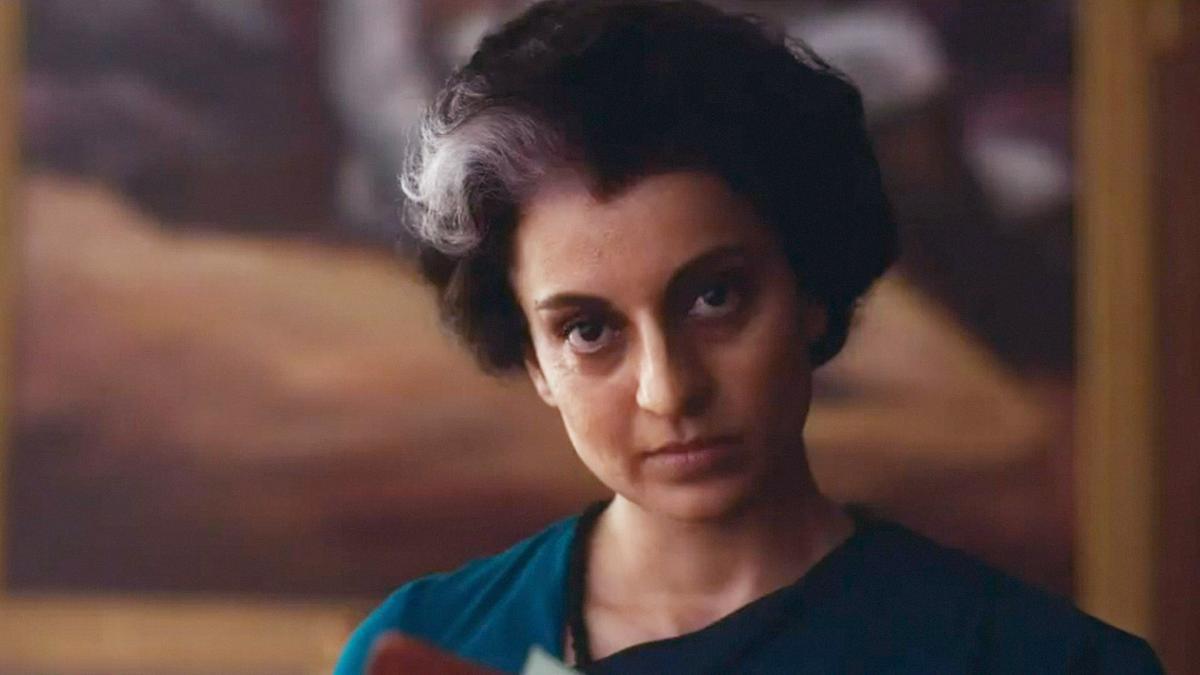
In a significant development, the Madhya Pradesh High Court on Monday issued notices to the Central Board of Film Certification (CBFC) and several other parties in response to a Public Interest Litigation (PIL) concerning the upcoming film ‘Emergency’, which has stirred a considerable controversy. This film, a biopic featuring Bharatiya Janata Party (BJP) MP Kangana Ranaut as former Indian Prime Minister Indira Gandhi, is under scrutiny following objections raised by two Sikh organizations. The Division Bench, headed by acting Chief Justice Sanjeev Sachdeva and Justice Vinay Saraf, has sought responses before the next hearing scheduled for September 3.
The PIL, filed by the Jabalpur Sikh Sangat and Guru Singh Sabha, Indore, objects to the portrayal of the Sikh community in the film’s trailer. The petitioners argue that specific scenes in the film violate the fundamental rights of Sikhs, and they have called for an unconditional apology from Ms. Ranaut. They are represented by advocate Narinder Pal Singh Ruprah, who has strongly criticized the depiction of the Sikh community in the film.
Mr. Ruprah emphasized that the inappropriate use of the term ‘Khalistan’ in the movie could lead to severe repercussions for young Sikh children. “We have small children going to school wearing turbans. Others will tease them as Khalistanis. It is the pride of every Sikh to join the Indian Army. Sri Guru Granth Sahib (the religious text of the community) has 1,430 pages and mentions the word ‘Ram’ 2,500 times. The entire history of Sikhs is so amalgamated with Hindus that you can’t differentiate between Hindus and Sikhs,” he elaborated.
Furthermore, notices have been issued to Kangana Ranaut, her production house Manikarnika Films, the Central and Madhya Pradesh governments, Zee Studios, and prominent social media platforms including YouTube, Instagram, and Facebook. Umesh Bansal, the chief business officer of Zee Studios, is also among those who have been served notice.
The core issue revolves around whether the CBFC has cleared the film for release. The court has asked the CBFC to clarify its position on this matter. ‘Emergency’ was initially slated for a November 2023 release but has faced multiple postponements, with the latest intended release date being September 6.
. However, following the High Court’s intervention, the release may encounter further delays.
Kangana Ranaut, who also penned the script for the film, has had a contentious relationship with the CBFC. She has previously alleged that CBFC officials were under pressure and had received threats over the movie, leading to delays in its clearance. Ms. Ranaut, a Lok Sabha member representing Mandi, Himachal Pradesh, has been vocal about her struggles with the film’s certification process.
The Sikh organizations have not only demanded an apology from Ms. Ranaut but also called for damages to be paid to a Sikh charitable body. They accuse Ms. Ranaut of making an “irresponsible” film that misrepresents their community. The case highlights the ongoing tension and broader societal implications of artistic expressions in India, especially when they touch upon sensitive historical and cultural themes.
The ongoing saga of ‘Emergency’ has drawn widespread attention, reflecting the complex interplay between cinema, politics, and community sentiments in India. The film’s depiction of a highly contentious period in Indian history—the Emergency era—naturally invites scrutiny. However, the specific objections regarding the portrayal of Sikhs add another layer of complexity to the issue.
As the court proceedings continue, stakeholders from various sectors, including the film industry, political circles, and the Sikh community, are keenly observing the developments. The responses from the notified parties, especially the CBFC, will be crucial in determining the film’s fate. For now, the release of ‘Emergency’ remains shrouded in uncertainty, awaiting the judiciary’s ultimate verdict.
This case serves as a reminder of the delicate balance that filmmakers must maintain when depicting historical events, particularly those that continue to evoke strong emotions. The outcome of this legal battle may set important precedents for future films dealing with similarly contentious subjects, thereby influencing the broader landscape of Indian cinema. As the September 3 hearing approaches, all eyes will be on the Madhya Pradesh High Court and the responses it elicits from the involved parties.












